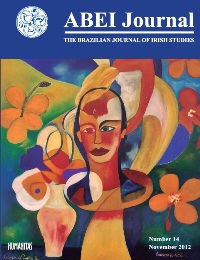Mário de Andrade and Brecheret: The Roots of Modernism
DOI:
https://doi.org/10.37389/abei.v14i0.3616Resumo
Mário de Andrade (1893-1945), the renowned polymath in Brazilian literature and culture, has an immensely rich trajectory as a journalist. Comprising articles, chronicles, essays, poems, short stories and novel excerpts, his journalistic production revolves around São Paulo and Rio de Janeiro, in the wider press and in specialized periodicals; it does not spurn tabloids and branches out into occasional contributions to newspapers of other Brazilian cities. His journalistic production may be found in every journal of our Modernism; it takes up sections and columns, and also flourishes in newspaper series. His death on February 25, 1945, however, brought all this to an end. In the present essay – part of a longer one about the chronicles related to the creation
of Paulicea Desvairada [Hallucinated City], in 1920-1921, I intend to focus on the strategies designed by those who aimed at celebrating the centenary of the Brazilian Independence, in 1922, endowing São Paulo Capital with a landmark of Modernism, the Monumento às Bandeiras, by sculptor Victor Brecheret.This goal is fostered by Mário de Andrade’s journalistic texts, and they have been preserved in the archive as well as
in the library that he organized.


